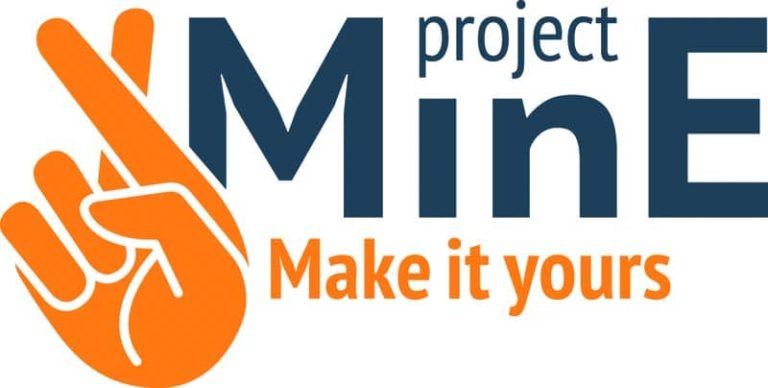

UK MND Collection samples
Originally called the UK MND DNA Bank, it was renamed to UK MND Collections in 2017 to encompass all of the components that make up the MND Collections; the DNA and Cell Banks and an Epidemiology Dataset. The UK MND Collections samples are being used to tell us more about the subtle genetic and environmental factors involved in MND. Over 3,000 people contributed to the UK MND Collections DNA samples and data over the ten years of the collection/recording phase of the project.
The samples are being used for genetic research, to understand the way that variations in our DNA may contribute to why people develop MND. The samples are also used to create models of MND – providing ways to understand why motor neurones die and to develop new treatments.
Two hundred people with MND, together with 200 matched controls, completed an epidemiology questionnaire. These data form the Epidemiology Dataset part of the UK MND Collections. This provides clinical and lifestyle information and in combination with the genetic information helps to identify potential environmental components contributing to disease in people with MND.
The MND Association has partnered with two biobanks to securely store DNA and cell samples for research. UKBioCentre in Milton Keynes stores DNA samples, while the European Collection of Cell Cultures (ECACC) at Porton Down manages cell samples. These collections contain samples from people with both inherited and sporadic forms of MND, as well as samples from family members and spouse controls.
Impact and summary of sample use
Since the UK MND Collections began, we have received more than 50 unique project requests from researchers to use the samples and data.
The bank continues to receive new applications, showing how valuable this resource remains to the MND research community even after sample collection stopped. So far, 80 research papers have been published using data from the MND Collections, and new papers are regularly being released.
In 2019, the MND Collections were named UKCRC Biobank of the Year, highlighting its ongoing importance to MND research.
Selected research projects involving the UK MND Collections
Stem cell (iPSC) bank
Induced pluripotent stem cell (iPSC) technology enables researchers to create and study living human motor neurons in the lab. Professor Chris Shaw, from King's College London, aims to use stored white blood cells from the UK MND Collections to create new iPSC models of MND. The stem cells can be grown into nerve cells, including motor neurons—the main type of cell affected in MND.
As part of this project, 35 new stem cell lines were created that passed standard quality checks and will be stored in a cell bank in the UK. By producing these high-quality stem cells, we hope to help identify important features of MND. With these lab-grown cells we can study MND in a more accurate way, enabling researchers to better understand the disease and screen potential new drugs.
Project MinE
A major collaboration has been established with an international consortium to whole genome sequence a worldwide collection of DNA samples from people with MND and controls. A genome represents the total genetic makeup of an individual.
Known as Project MinE, it is the biggest project of its type in the world. The goal is to sequence the genomes of at least 15,000 people with MND and 7,500 control subjects from around the world, comparing these DNA profiles to find rare genetic variations linked to MND. The UK MND Collections has contributed over 1,800 samples—making it the largest contributor outside the Netherlands—and all of these samples have undergone complete genome sequencing.
Thanks to additional funding from the Ice Bucket Challenge in 2014, the UK’s sample count grew to nearly 2,000, with further increases funded by partnerships with Credit Suisse and the first London City Swim. These combined efforts have made Project MinE the largest study of its kind. The data is openly available to researchers worldwide, leading to many impactful research publications that continue to provide valuable insights.
Precision medicine
PrecisionLife (Oxford, UK) uses a powerful data analysis platform to study complex diseases like MND more deeply than other methods can. MND is complex, with different symptoms, progression rates, and risk factors. PrecisionLife’s platform categorises MND patients into groups with similar causes, which can lead to targeted treatments tailored to patient needs.
Using this approach, PrecisionLife previously identified 33 genes linked to higher MND risk and biomarkers that help classify patient groups, showing promise for new treatments, drug development, diagnostics, and clinical trial recruitment for better patient outcomes. They also analyse past trial data to find markers of drug effectiveness, supporting drug developers in creating more precise treatments.
In a partnership with the MND Association and King’s College London, PrecisionLife is undertaking a new project to analyse genetic data from 1388 already sequenced samples together with additional information from MND Collections, including disease severity, age of death, and MND subtype diagnosis. This project showcases the rich amounts of information that can be obtained from MND Collections and Project MinE, and provides new insights into MND that could shape the future of personalised medicine and help develop effective treatments for people with MND.
Withdrawing my sample from the UK MND Collections
If you would like to withdraw your sample from the UK MND Collections, please contact the Research Development team on 01604 611782 or [email protected].
Notice of Processing of Patient Data from MND Collections in New Research Initiative
The Motor Neurone Disease (MND) Association is hereby, after recommendation by the Ethics Committee at King’s College London, publishing a notice regarding processing of patient data contained by MND Collections in a new research project.
The project is led by PrecisionLife, an Oxford based company using an artificial intelligence-based approach to analyse large disease population datasets, which generates much deeper understanding of complex diseases like MND. The press release containing more information on the project can be found here.
MND Collections is an MND Association-funded resource combining more than 3000 blood samples and clinical information from people living with MND as well as from healthy donors. Collected started in 2003 and stopped in 2012. As part of an international collaboration, over 2000 of these samples have been genetically sequenced through the Project MinE consortium. An academic team at King’s College London, led by Prof Ammar Al Chalabi, has created and curated a whole genome sequencing (WGS) database as part of Project MinE.
Under this research initiative PrecisionLife was granted extended clinical sample records from the MND Collections. This involved a formal application to be reviewed by the Association’s Biomedical Research Advisory Panel, a committee of neuroscientists and neurologists with MND expertise which reviews research applications. The Panel recommended that the Association, as custodians of the resource, allow the release of clinical data for the samples. Clinical data from the database owned by and held at King’s College London has been licensed to PrecisionLife.
Sample donor confidentiality was assured by anonymisation of the data, and does not constitute personal data (as defined in the Data Protection Legislation).
We would like to thank all participants, donors and carers, without who this invaluable research resource would not exist.
